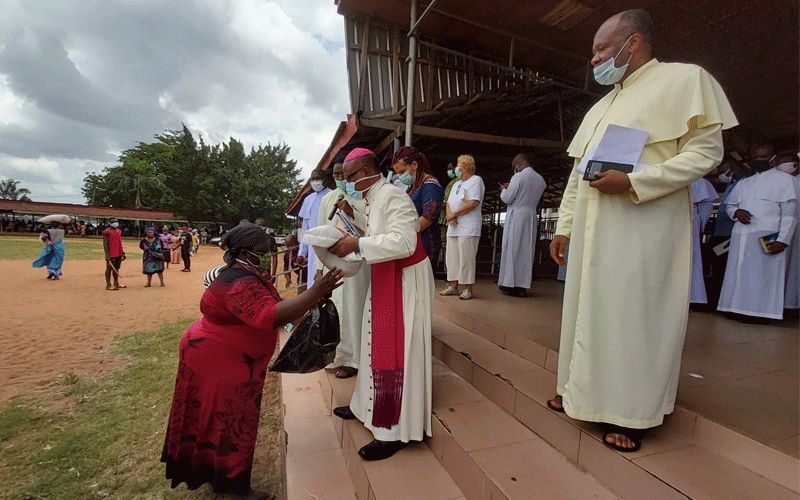Onitsha, 09 May, 2020 / 3:31 am (ACI Africa).
The need to care for the people of God in society amid COVID-19 restrictions is significant for the very existence of church because these people, including the less privileged, constitute the church institution, a Nigerian Archbishop has said.
“Apart from attending to the spiritual needs of the people, the Church is obliged to care for the less privileged during a crisis like the COVID-19 pandemic because without the people, there would be no Church,” Archbishop Valerian Maduka Okeke said Wednesday, May 6.
The spiritual and material well-being of the less privileged should be a major concern of the Church amid restrictions put in place to contain the spread of COVID-19, the Archbishop underscored.
He was presiding over the distribution of relief materials aimed at cushioning people affected by COVID-19-related restrictions in his Archdiocese of Onitsha in Anambra State, Nigeria.
Addressing residents, priests and journalists who converged at the Basilica of the Most Holy Trinity for the event, the Nigerian Prelate said that the palliatives were being distributed without discrimination of religion, tribe or ethnicity.








